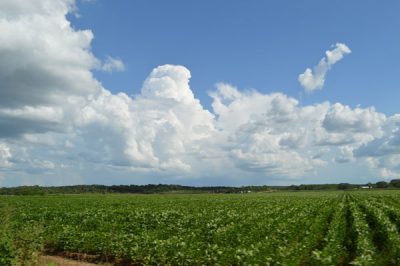CAMPECHE — Farmers in the state of Campeche are on the brink of losing this year’s soybean crops as they await public discussion that will determine whether to accept or reject the cultivation of the genetically modified beans.
The planting cycle for transgenic soy crops began two weeks ago, but producers cannot go ahead before the people in their communities decide in favor or otherwise. Those communities should be well informed about the benefits or otherwise of genetically-modified seeds, say the bylaws, and their decision should be based on scientific fact.
One producer is facing the threat of losing the entire planting cycle and an investment of 300,000 pesos, as well as leaving five families without a source of income.
Guillermo Hernández, a transgenic soybean farmer and beekeeper, told the newspaper Milenio: “I’ve been harvesting soy for 15 years and there is no reason for stopping it. What they say, that [GMO soy] kills bees isn’t true, and I work with both.”
The Campeche farmer added that if he only grew natural soybeans he would have to use more chemicals. “The natural soy has no protection, the plants are susceptible to many weather and disease factors.”
Hernández says he only has to invest 250 pesos per hectare of GMO soy, but that figure leaps to 1,200 if the natural variety is grown instead.
Hernández’ own experience isn’t enough for local commissioner Joaquín Guillermo Canché, who demanded “complete information” on the issue. He said he and at least 50 Maya people he represents “won’t accept external pressure, or we’ll exert pressure in turn.”
“We want to know what damages are caused by the transgenic seed . . . and also determine the conditions before reaching an agreement with the government.”
“Transgenic crops are profitable but we’re poisoning our children in the process and that’s what we don’t want. The community doesn’t want that crop,” said Guillermo.
The state delegate of the National Commission for the Development of Indigenous Peoples (CDI) said they cannot speed up the process as everything “will happen according to the schedule the people decide upon.”
Soy producers claim they have been left out of the discussion process: “We’re from Campeche and we have the experience of at least 10 years’ growing this crop.”
Sagarpa, the Agriculture Secretariat, says there are 370 soybean growers in the state. Growers, meanwhile, claim they number more than 800, and their farms support 6,000 families
Source: mexiconewsdaily.com




